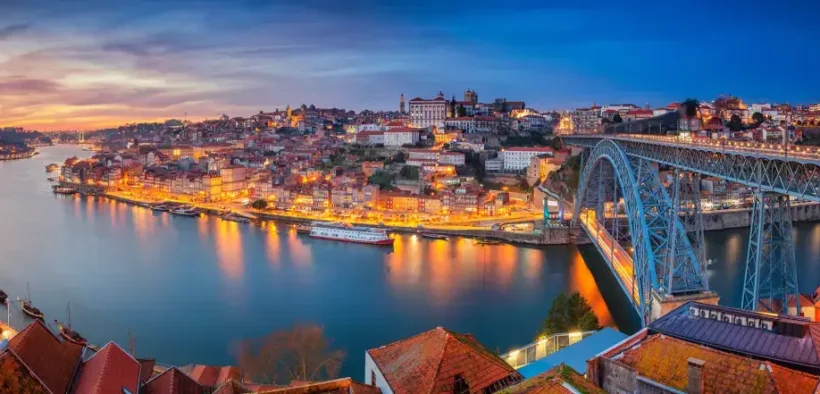Why Americans Are Moving to Portugal in 2025
Share

For a growing number of Americans, the dream of starting over isn’t just a fantasy anymore, it’s taking the shape of golden beaches, cobbled streets, and slower mornings in Portugal.
The small but stunning country on Europe’s western coast has topped Expatsi’s latest survey of places Americans most hope to move to. And the reasons are easy to understand: many are tired of the political noise, the rising cost of everything, and the constant rush that defines life in the U.S.
Portugal, by contrast, offers something quieter and, increasingly, something irresistible.
Even Prince Harry and Meghan Markle are said to have found a home there, joining a growing number of high-profile names (like Princess Eugenie) and everyday people hoping to trade chaos for calm.
“Portugal first caught attention for its visa and tax-friendly policies,” explains Jen Barnett, co-founder of Expatsi. “But now, people are realizing it offers so much more, safety, affordability, and a way of life that feels a little lighter.”
Elizabeth Burke, a retired educator from Washington, D.C., first visited Portugal in 2016. She now returns annually—and is planning to move there within the next five years.
“There’s a feeling you get when you land in Portugal,” she says. “Calm. Relief. It’s like the air itself encourages you to slow down.”
Burke is not alone. According to the Expatsi study, 56% of respondents say the U.S. has become “too conservative,” and 53% say the political climate feels “too divisive.” For them, Portugal is not just a place but a symbol of safety, simplicity, and peace.
The Portugal Effect
With a Mediterranean climate, centuries-old architecture, and a cost of living still markedly lower than major U.S. cities, Portugal has become something of a sanctuary for disenchanted Americans.
And while earlier waves of expats were largely drawn by Portugal’s Golden Visa program, offering residency in exchange for property investment, the appeal has since evolved.
That particular program ended in 2024, following pushback from Portuguese citizens concerned about housing affordability. But the country’s overall immigration framework still offers attractive pathways.
The D7 visa, for instance, allows retirees and remote workers to apply for residency with proof of stable income, a local address, and basic documentation such as a criminal background check and health insurance.
“There’s a growing awareness that Portugal’s strengths go beyond its visa programs,” explains Jen Barnett, co-founder of Expatsi. “It’s about quality of life, safety, culture, and a sense of everyday ease.”

The Challenges of Popularity
Portugal’s popularity has, however, raised difficult questions at home. The influx of foreign buyers, particularly from wealthier nations, has driven up real estate prices in cities like Lisbon and Porto.
A modest one-bedroom apartment in Lisbon can now exceed $600,000, comparable to prices in Los Angeles or New York.
This housing pressure led to reforms in 2024, when the government officially ended the real estate-based Golden Visa.
New investment routes now include contributions to cultural, scientific, or business projects, a shift designed to direct foreign capital into public-interest areas rather than housing speculation.
Despite the changes, the interest hasn’t waned.
Cultural Appeal and Caution
Portugal offers more than attractive economics. Its regional diversity, from the wine valleys of Douro to the golden beaches of the Algarve, adds to its charm. Residents can travel easily to nearby Spain or enjoy direct access to much of Europe.
But not all locals are enthusiastic about the surge in expats. While Portugal is known for its hospitality, concerns have grown over rising rent, overcrowded tourist zones, and lifestyle clashes.
“There’s always a risk of overexposure,” said one Lisbon resident who asked not to be named. “We welcome people, but we also want to protect what makes this place livable for us.”
So, Is It Really That Easy to Move?
Not exactly. Moving abroad takes planning, patience, and sometimes a bit of luck. But for many Americans, it’s worth it.
Burke has already started taking Portuguese lessons. “I want to be part of the community, not just a visitor,” she says. “I want to blend in, buy local, make friends. Learn the songs.”
She’s hopeful, but also realistic. If the visa doesn’t come through, she’ll keep visiting. “Portugal’s in my heart now,” she says. “Even if I’m just a tourist, I’ll always come back.”


















